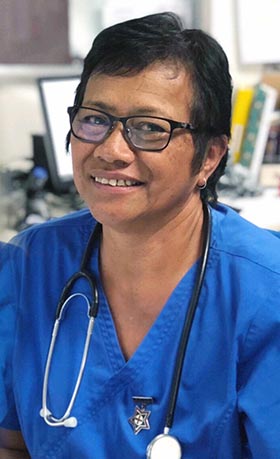
“My siblings and I grew up understanding te reo but we weren’t encouraged to speak it. Mum would tell us, ‘Ahore tenei te ao Māori me mohio koe ngā mea o te Pākehā – this isn’t the day of Māori. Learn the ways of the Pākehā’.”
When Sullivan was growing up, some children went to Māori schools and some to Pākehā schools. She and her siblings went to the Pākehā school. She remembers the Māori kids at the Māori school being “quite mean to us”, especially when she went there to deliver some notices. “The kids would throw walnuts at me and tell me to go back to the other school. I did not volunteer to deliver notices again.”
For Sullivan, people are either kind or not. “Skin colour or culture don’t matter because we all have the potential to be kind or unkind. Sometimes Māori are worse critics towards their own.”
Using her Māori name marked a turning point in her life. “I went back to the Church of Jesus Christ of Latter Day Saints in which I had been brought up, and I stopped smoking and drinking. Using my real name has helped me be in the place I need to be.”
Influence of racism
Sullivan was one of four people on a panel discussing racism and its role in shaping New Zealand earlier this month as part of the Tackling Inequity to Improve Outcomes conference in Wellington. Māori clinical nurse director at Auckland and Waitemata District Health Board Dianna McGregor was also on it.
Sullivan spoke of her role at the Dargaville Medical Centre, where she has worked as a registered nurse (RN) since 1995. She described her own attitudes towards racism as: “I don’t do negative and I try not to take negative experiences personally. When I joined the centre, I was the only Māori nurse. That changed four years ago. Now our frontline staff include Māori and Pasifika.
“In the past, Māori were only a small percentage of attendees. Now they are 31 per cent, with 62 per cent of our 12,000 enrolled patients being Pākehā and two per cent Pasifika. Our Māori population is becoming more interactive in their health care, but we still have a long way to go to get them to manage and understand their own health. That comes back to education. Who delivers that education is a question only Māori can answer.”
Because she can whanaungatanga across Ngāpuhi, Sullivan believes she can say things quite directly to Māori patients and they don’t get offended. “We laugh a lot about things,” she said. “I also like to use simple language and pictures when I explain test results or disease processes to my people. Technology really helps here.”
Other speakers at the two-day Tackling inequity conference were NZNO kaiwhakahaere Kerri Nuku, professor Peter Crampton from the Centre for Hauora Māori at the University of Otago, clinical director of the national Hauora Coalition Rawiri McKree, Dargaville Medical Centre RN and practice manager Judy Harris, and Dargaville GP Bev Hopkins, a fluent te reo speaker.




